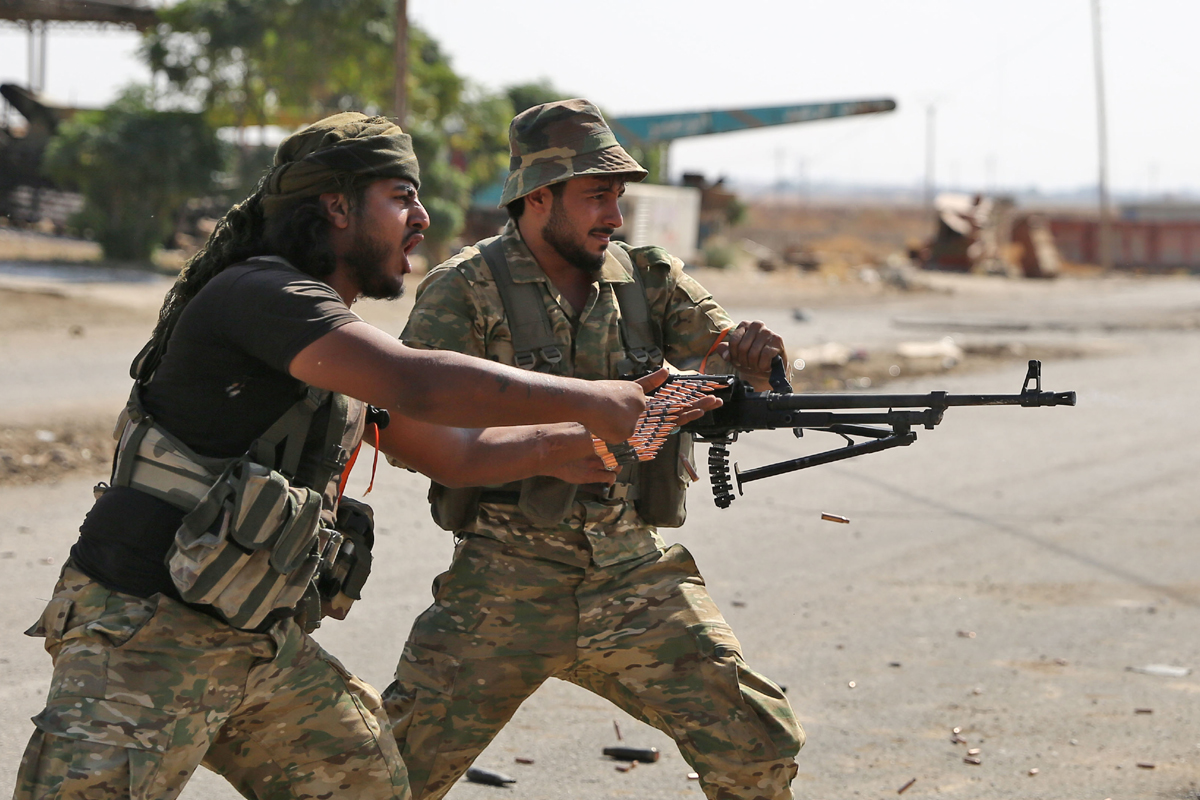The striking feature of the Turkish assault on the Kurds in north-east Syria, which entered its fifth day on Sunday, must be that the Kurdish- led forces have reached an agreement with the Assad regime in an effort to apply the brakes on the offensive against an ethnic group. It is open to question though whether the deal will lead to a cessation of hostilities.
After all, Turkey’s President, Recep Tayyip Erdogan, has a domestic constituency to take care of not the least because of a slide in his ratings and the general economic crisis. He has already rejected offers for mediation with the SDF and criticised his western allies for standing by what Turkey considers to be a terrorist organisation. The other crucial development over the weekend has been the escape of an estimated 750 people, with links to the Islamic State of Iraq and Syria, from a detention camp in the area.
Advertisement
The deal, brokered by Russia, envisages a change in the dynamics of geopolitics. Kurdish fighters controlling the region will surrender the border towns of Manbij and Kobane to Syria, and the deal would be extended to apply to the whole of north-east Syria. Units from President Bashar al-Assad’s army are moving north to confront Turkish aggression on Syrian territory. The deal is likely to mark a bitter end to five years of semiautonomy for Kurdish groups in north-east Syria, forced by Ankara’s offensive on the area.
Turkey’s Operation Peace Spring started last Wednesday after Donald Trump’s announcement that US forces would withdraw from the region. The US President did not specify a timeframe for the US withdrawal from Syria, but US Defence Secretary Mark Esper has said the remaining 1,000 special forces in the country had been ordered to leave “as safely and quickly as possible” as the fighting between Turkey and the SDF begins to threaten US military positions.
The area’s Kurdish-led fighters, the Syrian Democratic Forces (SDF), have been funded and trained by the US to combat Isis since 2015, finally defeating the militant group in March after losing 11,000 troops in the battle. Turkey, however, claims that the largest unit of the SDF, the Kurdish YPG, is a terrorist group indistinguishable from the Kurdistan Workers’ party (PKK), which has fought an insurgency against the Turkish state for decades. Ankara’s offensive has brought matters to a head after the crisis was brewing for a while. Trump’s decision to abandon the SDF to an inevitable Turkish assault has been widely criticised even by his staunchest allies as a betrayal of a US military partner, marking the resurgence of Isis amidst the overwhelming chaos.
The escape of 750 potential militants, including women and children, has predictably raised fears across Europe, most particularly in France. Formerly part of the Caliphate, they had been detained in a secure annexe at the camp. They began to riot and scared away the guards after Turkish shelling struck close to the area on Sunday. The regional cocktail is much too forbidding for any quick-fix deal to resolve.











